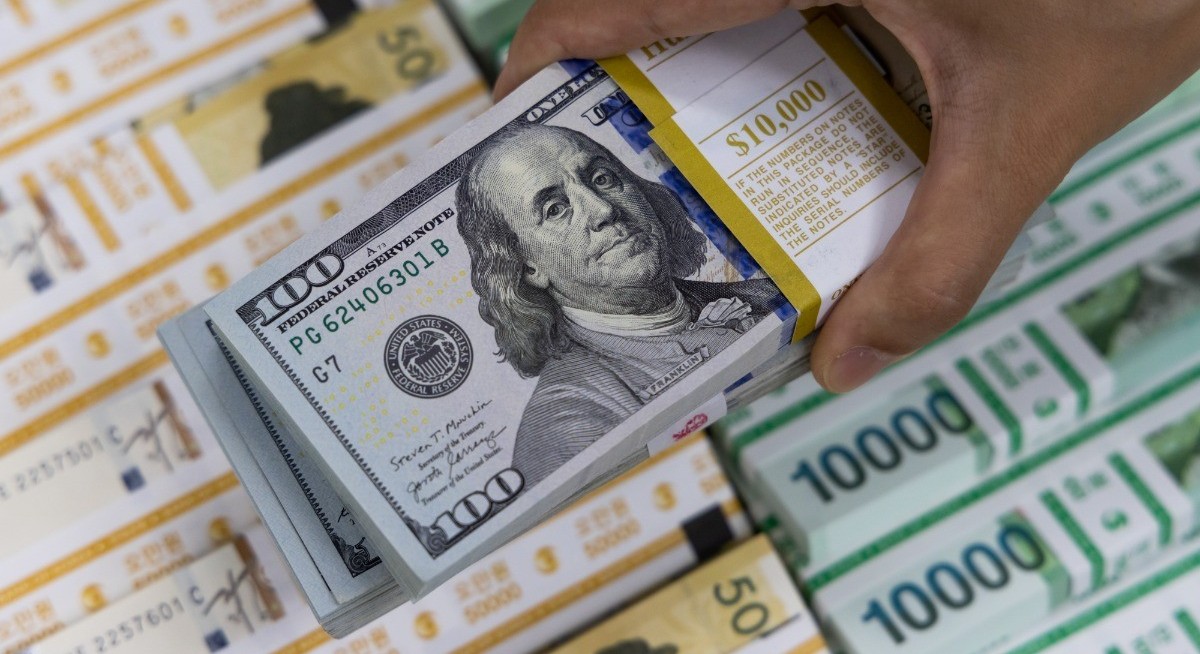(Oct 28): Kim Ji-yeon is so worried about South Korea’s currency that she is moving all the money she can into US stocks and gold. A key reason: South Korea’s pledge to invest US$350 billion in the US, a figure that has stoked fears of spiralling losses in the currency.
“The Korean won is turning into toilet paper,” said Kim, a 32-year-old office worker in Seoul.
Kim is joining a rush among South Korea’s 14 million mom-and-pop investors, whose march to overseas markets risks turning into an exodus. Their holdings of US stocks and bonds hit US$184 billion this month, according to Korea Securities Depository data, the highest on record.
That is ramping up pressure on South Korean President Lee Jae Myung, set to meet US President Donald Trump on the sidelines of the Asia-Pacific Economic Cooperation summit this week. Months after the two countries agreed on the broad strokes of a trade deal that offered relief for South Korea, the focus has shifted to the costs for the country — and its dire impact on investor sentiment.
The South Korean won has dropped more than 3% against the dollar over the past three months, making it one of the worst performing currencies in Asia. Bank of Korea governor Rhee Chang Yong has said the rush among South Korean investors to buy overseas assets is putting clear pressure on the won, and making it harder for the central bank to manage currency volatility.
Goldman Sachs Group Inc said in an Oct 24 note that retail outflows are likely the biggest driver of the won’s sharp underperformance against other Asian currencies. The won fell around 0.3% against the dollar on Tuesday, lagging a small rise in the region’s currencies.
See also: Singapore swap rates are set to rise from three-year low: Bloomberg
Retail investors “now have a strong sense that if they hold on to the won without doing anything, they would become an overnight beggar”, said Kim Hwa-Joong, the head of the private wealth management division at Mirae Asset Securities Co, one of the nation’s biggest brokerages. Many of her clients have already switched to dollar assets.
South Korea’s promise to invest US$350 billion in the US, which followed a US$550 billion pledge from Japan, allowed Seoul to limit tariffs on shipments of goods such as cars, smartphones and machinery to 15%. But the deal left major areas of uncertainty to be worked out, particularly how the money would be spent. Lee initially indicated the US$350 billion would help South Korean companies enter the US, with US$150 billion dedicated to the shipbuilding industry.
This sense of nervousness among small investors in South Korea belies the eye-popping returns in the country’s stock market this year. The benchmark Kospi Index has jumped almost 70%, making it one of the best-performing in the world — and easily eclipsing the gains available from investing in US indices. Shares of SK Hynix Inc, a chip supplier to Nvidia Corp, have more than tripled.
See also: Thailand vows to curb baht swings as currency hits 4-year high
But many small investors remain unconvinced. So far South Korea’s booming stock market rally is being driven by big institutional investors, including an influx of foreign funds. Foreigners have put around US$13 billion into South Korea’s stock market so far in the second half of this year, but this amount has been more than offset by the outflow from retail investors, according to Bloomberg and depository data.
Economic worries
Park Jun-won, a 25-year-old social worker in the city of Hwaseong, said holding dollar assets just feels like good risk management. During years of part-time jobs including cleaning the tables at a barbecue restaurant, he always made sure to set aside money to buy US stocks such as Berkshire Hathaway Inc, Coca-Cola Co and Microsoft Corp.
“I don’t know why but just owning the dollar makes me feel like I am managing the risks,” he said. “Because the economy is struggling, I am not that pleased by the latest rally in the stock market. I think it’s only natural to wonder ‘why should we hold on to Korean money?’ in these circumstances.”
The economy will grow just 0.9% this year, according to government estimates, marking its slowest expansion since the Covid-19 pandemic. But rising household debt and signs of a property bubble have constrained the ability of the Bank of Korea to fuel growth with interest-rate cuts. It held rates steady on Oct 23 for the third meeting in a row.
Lee said in an interview last Friday that South Korea and the US remain stuck on all the major details of the trade deal, including how Seoul actually invests the money and how the profits and losses are doled out. South Korea could dramatically reduce the damage to state coffers by replacing cash payments with loan guarantees.
To stay ahead of Singapore and the region’s corporate and economic trends, click here for Latest Section
The Bank of Korea has said that US$20 billion a year is probably the maximum the government can provide without affecting the currency market.
“The US will of course try to maximise its interests but it mustn’t be to the extent that causes catastrophic consequences for South Korea,” said Lee, signalling the two countries may fail to finalise the trade deal in time for his meeting with Trump.
That is a message the government may need to sing a little louder for investors like John Lee, a tech start-up employee in South Korea’s populous Gyeonggi province. Lee only recently started to play the stock market after being scared off by previous downturns such as the dot-com bubble and the global financial crisis. He has kicked off his investing career with pessimism.
“Investing in won-denominated assets right now is like investing in asset devaluation,” he said. “I genuinely feel that investing in the US is the only way to protect myself from inflation.”
Uploaded by Tham Yek Lee





